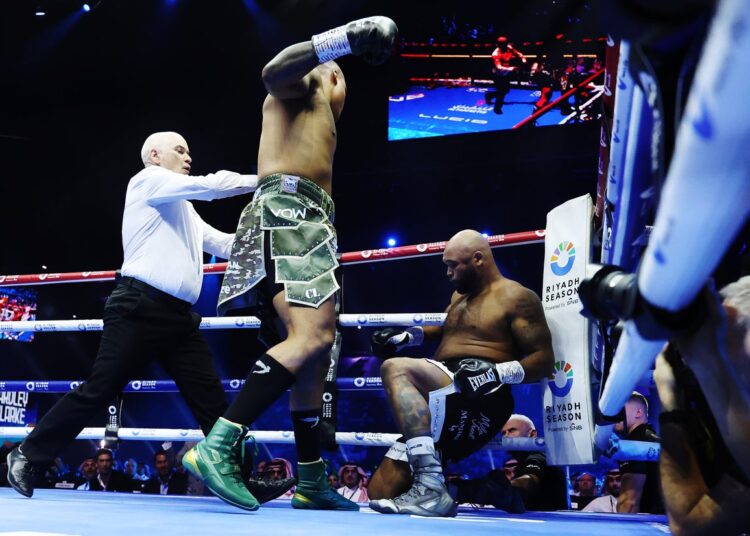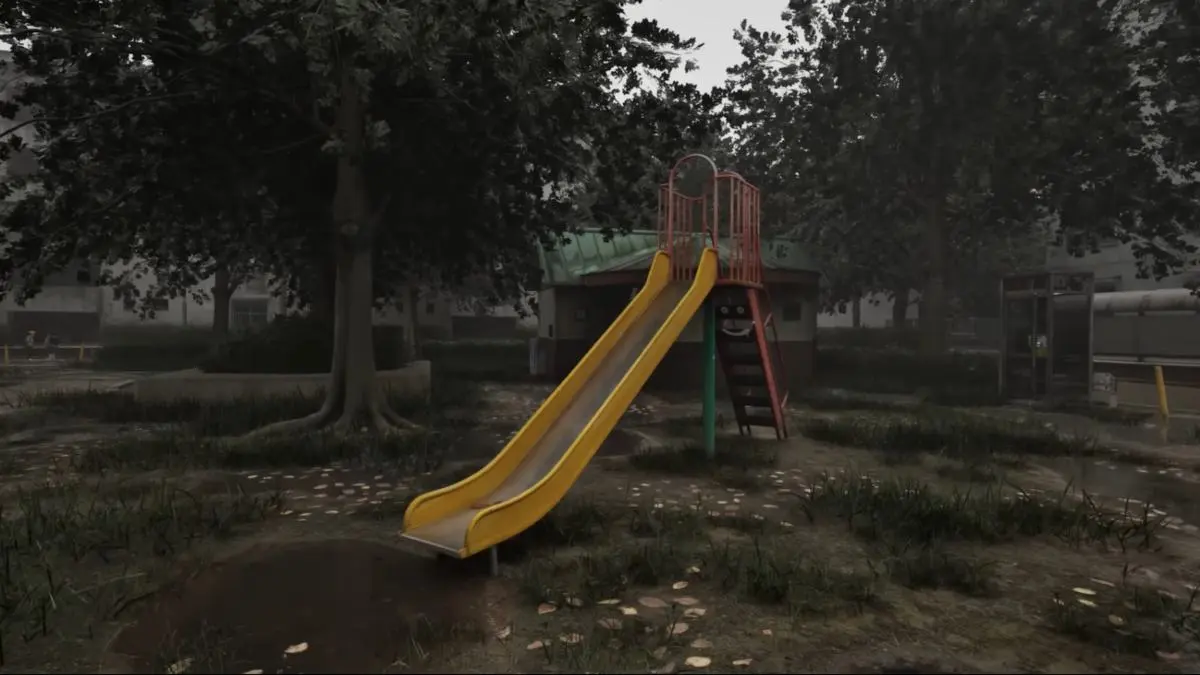As the camera lingered on a malformed face, the eeriest realisation crept in: we weren’t looking at Frazer Clarke – not really. It’s in the eyes, see, and no one was there. The British heavyweight, who had never before been beaten, was now the definition of that word. Inches below those hollow eyes, Clarke’s jaw was freakishly askew, and most sickening of all was the literal dent in the side of his head. The 33-year-old looked like a zombie mid-transformation, or a glitching video-game character.
The desensitisation we feel, the more we watch fight sports, is an admittedly concerning part of the human condition, but this was a knockout to shock even the most hardened viewers. Seven months after Clarke and Fabio Wardley produced a fight of the year contender, a draw that kept the British heavyweight title on the latter’s shoulder, fans had anticipated another draining, bloody duel. But Saturday’s rematch in Riyadh was a different kind of gruesome.
Within two-and-a-half minutes of the first bell, Clarke was done. Sunken to a knee, with one arm wrapped around the second rope – the act of an autopilot – Clarke was saved by the referee after a brief but debilitating attack from Wardley. ‘Saved by the referee’ is the phrase we use in these situations, at least; Clarke was saved from further damage, yes, but what about the effects of the punches that Wardley did land? What about that instant destruction?
Wardley, a notoriously fast starter, brought a swift end to the contest with strength, nous and precision. Firstly, the 29-year-old wrestled Clarke onto the ropes, leaving the Olympic bronze medalist facing the wrong way. Then, as Clarke turned back towards his rival, Wardley waited for the right moment to land a legal shot – a left hook that battered Clarke’s guard. Next was a right hook, which was similarly blocked by Clarke, but not enough to neutralise it completely. Finally, Wardley feinted a jab and hurled an overhand right that breached Clarke’s defences entirely, inflicting the devastation described above.
Clarke’s head bounced off the top rope, leaving him suspended in a surreal state of non-being, of non-consciousness. The dent under his left ear was the result of a suspected fracture to his cheekbone. Whether or not that was instead of a broken jaw, or as well as one, is not yet clear.
The greatest harm, however, may not yet be measurable. In cases like this, any cognitive impairments could stay concealed for years, decades. The hope is that this is an overreaction, and that the visible, exterior issues are the full extent of the injury.
Either way, Clarke might well dismiss the opinions on this page. Discussing the notion that boxers can be ‘changed’ by a fight, even one as brutal as his first clash with Wardley, Clarke told The Independent in August: “This is no disrespect… I think journalists, and people that have never boxed, can cling to what others have said in the past. I know myself, and it was a hard fight, but I went on a nice couple of holidays after, had some rest, I’ve been training again; I’m as good as new. But it might be so alien to some people, to go through that.”
That point was respectfully delivered and duly accepted. But this time? It is harder to imagine that Clarke will be “as good as new” when he next competes. In situations such as these, commissions enforce medical suspensions, ensuring that the boxer in question will not fight until they are fit to do so.
Clarke should take extra time to recover, although he will not want to. He turned professional ‘late’ in this sport, aged 30, and time was always going to work against him in his bid to become a world champion. But Clarke earned a British title fight with impressive speed – in just his ninth pro bout – and this loss certainly does not have to be the end for him.
It should, however, be a fresh start for Clarke – and a lesson to us all. Boxing normalises pain and injury, but this is not a normal sport, and we would do well to remember that. So would Clarke. He is a great boxer and an intelligent man, and he must consider his next move carefully.
Read the full article here


























